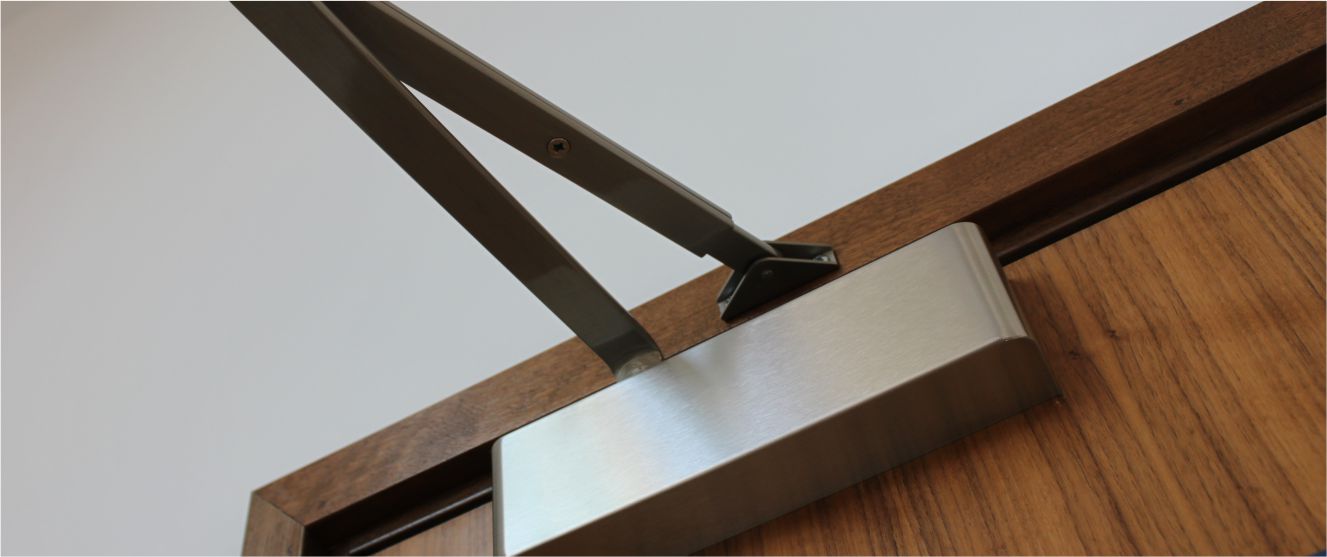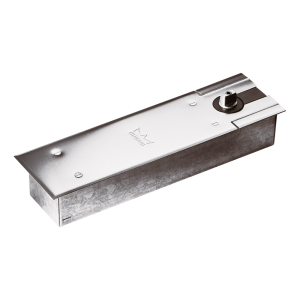Are There Different Types Of Door Closers For Different Types Of Doors?

Choosing a door closer for your internal or external doors is an important element of fitting out a commercial or industrial building, and yes, there are different types of door closers for different types of doors. But it doesn’t follow that certain door closers are only suitable for certain doors. There is a lot of flexibility offered by different door closer designs and it really comes down to a number of practical considerations. In this guide we will outline these considerations and how they might apply to the various different door closer designs commonly available.
What to consider when choosing a door closer for your door
The different types of door closer on the market can be used for different doors, but not all doors. But it is not always the door itself which dictates which door closer you should use. Sometimes this is down to other considerations, and here we have listed these with an explanation as to why they are an important factor:
- Door traffic – you need a door closer that can cope with the amount of traffic passing through a door and which can be adjusted to provide the appropriate closing speed. For example, in a healthcare setting you would need a door to stay open longer due to the elderly, ill or disabled passing through. While in a clinical laboratory you may need a door to close quickly to maintain air temperature and quality.
- Size and weight of the door – of course a door closer needs to have the physical capability to control the size of door it is attached to, and different door closers have different abilities.
- Environmental conditions – as well as maintaining air temperature inside a building or a room, door closers are needed for internal doors where drafts can blow through internal corridors, or for external doors where wind can whip violently and cause doors to slam shut. In this situation a door closer can provide an important safety function in controlling the door, and can also prevent damage to the door.
- Internal or external – the type of door closer you choose can differ according to whether the door is internal or external. For some external doors there may be an increased need for security, so guaranteeing that a door is 100% shut by a door closer may be critical. Many external doors are not fire doors, but where they are this may also affect which door closer you choose.
- Fire doors – is the door closer fire-rated and has it undergone the relevant fire tests?
- Inward or outward closing – not all door closers have universal fittings, so you may require a specific door closer depending on whether a door opens inwards or outwards.
How to choose a door closer for your type of door
The best way to choose the right door closer for your type of door is to list the most common types of door closer and explain what kind of doors they are most suitable for.
- Surface-mounted door closer
These are the most common type of door closer and use the traditional rack and pinion design, where a pivoted arm is attached to the door and the door frame and hydraulics control the door speed. The door speed can be adjusted to suit your needs, but in general the surface-mounted door closer is the most adaptable to different types of door. So it can be used for domestic and low-use commercial environments, for medium-usage offices and apartment blocks, and for heavy-usage offices, public buildings and retail stores.
Essentially, you need a door closer appropriate to the door you choose, and some models of the surface-mounted door closer are capable of closing heavy duty doors, which require more force to close them. This type of door closer will make a heavy duty door feel much lighter, while a fire door will require a surface-mounted door closer that is fire-rated, but also with a specific force capability, to ensure it shuts for safety and insurance reasons.
This type of door closer is a much simpler design and is usually morticed into the door itself or the door jambs. This is a more discreet type of door closer and is appropriate for doors with only a light to medium level of usage.

Similar to the concealed door closer, this design is aesthetically-pleasing as it is completely concealed under the floor. It is ideal for glass doors as there is no visible mechanism, and it can also be used for oversized doors and areas with heavy traffic. A floor-sprung door closer is durable and long-lasting and is also ideal for when a door opens tight against a wall. In this situation you may not have space behind the door to install a surface-mounted rack and pinion door closer.
If you require any assistance in choosing the right door closer for your type of door, then contact our expert sales team at MB Direct, and we can advise on how best to proceed.